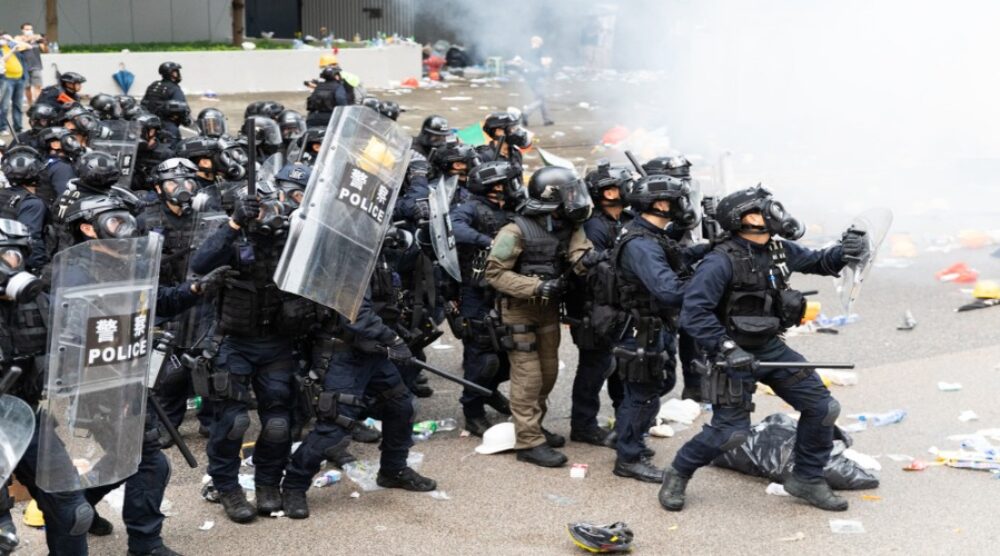The 30th of June is always a challenging day in Hong Kong, as it marks the eve of the anniversary of its 1997 accession by the People’s Republic of China (PRC). This year, it proved especially trying for Hong Kong’s beleaguered chief executive, Carrie Lam, whose approval rating has swung over the last four months between 9 per cent and a COVID-suppressing high of 27 per cent.
Nonetheless, she managed both to downplay the impact of the new National Security Law Beijing would impose the following day on her city – only an “extremely small minority of people” who had broken the law would be affected by it, she said – and also to use a scheduled address, via video, to the UN Human Rights Council in Geneva to champion the need for its introduction, claiming that Hong Kong had been plagued by protests that were “fanned by external forces”.
All 162 members of the National People’s Congress standing committee supported the law, passing it within 15 minutes of the start of their meeting in Beijing’s Great Hall of the People on the morning of 30 June. That evening, Chinese President Xi Jinping effected it by signing the document.
The legislation was expected to be tough, but it far exceeded even the fears of the pro-democracy campaigners who had attracted the world’s attention.
Following the suppression first of Tibet and then of Xinjiang, the Hong Kong legislation marks the completion of the Party’s unanswerable control and total surveillance of every quarter of the PRC. Lam told the Human Rights Council: “We could think of no valid reason why China alone should be inhibited from enacting national security legislation to protect every corner of its territory.”
Please click here to read the full “Hong Kong: The finishing blow” article originally published at The Interpreter, written by Griffith Asia Institute, Industry Fellow, Rowan Callick.








